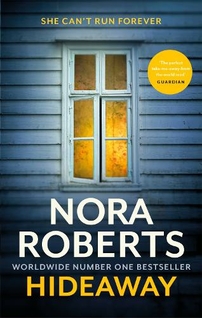
He found the more the first time he turned over a bit of that hard-earned pay to sit in a movie theater with Mary of the flaxen hair. While in only a matter of weeks he grew to hate the sounds, the smells of the work, he earned his keep. He was welcomed, embraced, given a bed in a room he shared with two of his cousins. He was bound to apprentice with his mother’s brother Michael Donahue as a butcher in the Meatpacking District. Not just an ocean away from the farm where he’d been born and reared, he thought. So much color and noise and movement, so many people squashed into one place. With Mary he stood in the cool, fresh air-fresh at last-and saw the great lady with her torch held high.

He shared a flirtation and a few eager kisses with a flaxen-haired girl named Mary from Cork who traveled to Brooklyn and a position as a maid in some fine house. When the ship rolled and rocked in a storm, and the air stank of vomit and fear, he blessed his iron constitution.ĭutifully, he wrote letters to home he dreamed of posting at the end of the voyage and kept spirits up by entertaining his fellow passengers with song and dance. He endured the Atlantic crossing with others looking for more in the cramped confines belowdecks. Shortly before his sixteenth birthday, he left home, a few precious punts in his pocket. He dreamed of more than plowing the fields and milking the cow, much more than the pennies gathered at the little pub in Glendree. His soaring tenor could bring a tear to the eye, and his agile body and fast, clever feet lift the spirit when he danced.


He’d learned how to shear a sheep and slaughter a lamb, to milk a cow and build a rock wall.Īnd he remembered, the whole of his long life, the nights his family sat around the fire-the smell of peat smoke, the angel-clear voice of his mother raised in song, his father smiling at her as he played the fiddle.Īs a boy he’d sometimes earn a few pennies singing in the pub while the locals drank their pints and talked of farming and politics. He’d known from an early age the backbreaking work of plowing a field behind a horse named Moon. He’d lost an uncle and his oldest brother in the first Great War, had grieved for a sister who’d died before her eighteenth birthday delivering her second child. He’d known hunger in the lean times, had never forgotten the taste of his mother’s bread and butter pudding-or the whip-swat of her hand when he’d earned it.

When Liam Sullivan died, at the age of ninety-two, in his sleep, in his own bed with his wife of sixty-five years beside him, the world mourned.īorn in a little cottage tucked in the green hills and fields near the village of Glendree in County Clare, he’d been the seventh and last child of Seamus and Ailish Sullivan. And its nature is sweetness-until something happens.


 0 kommentar(er)
0 kommentar(er)
